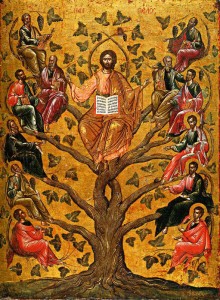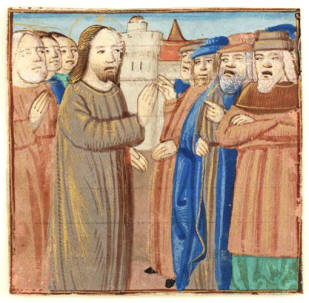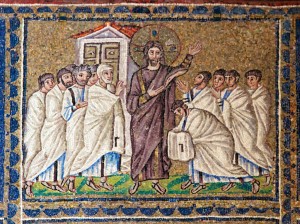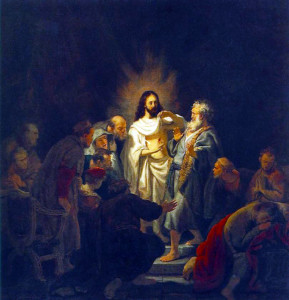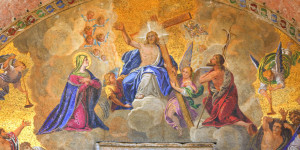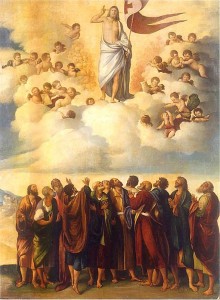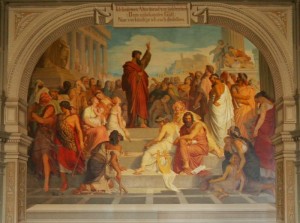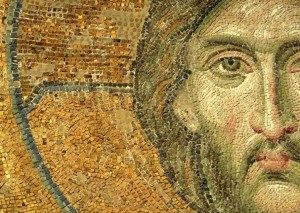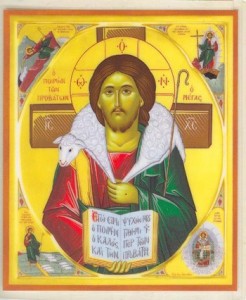Thoughts on Today’s Lessons for May 10, 2015
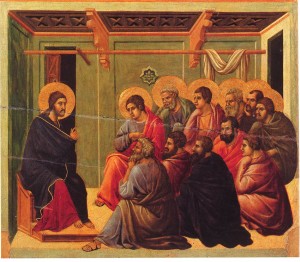
Jesus giving the Farewell Discourse to his eleven remaining disciples, from the Maesta by Duccio, 1308-1311.
Last week in an earlier passage in Acts, we heard of Philip baptizing the Ethiopian eunuch. Now the leaders of the early church recognize that the Holy Spirit comes to everyone, not only Jews but Gentiles as well: Everyone. Peter asks, “Can anyone withhold the water for baptizing these people who have received the Holy Spirit just as we have?” The answer is clear: Baptism is for everyone. “Here is water.” What is to prevent it?
Psalm: Psalm 98
Filled with triumphant spirit, this Psalm rings out a resounding faith in God’s power to win victory for Israel over all the earth. This is an occasion for rejoicing, for not only the people but for all the earth – the sea, the rivers and the hills – to lift up their voices and sing. Consistent with the theme that runs through today’s readings, God’s victory is not for Israel alone. God will judge not only Israel but all the people of the earth with mercy and equity.
Second Reading: 1 John 5:1-6
Both this reading and today’s Gospel pick up where last week’s readings left off, and both continue similar themes. We were told to love one another as Jesus loves us. Now we are told to love God by obeying God’s commandments (a command that carries out the Jewish tradition of love for God’s law and teaching). In words that might remind us of today’s Psalm, we hear that our faith in Jesus Christ as the Son of God brings God’s victory into the world.
Gospel: John 15:9-17
In Matthew’s Gospel, Jesus declared that the greatest commandment is to love God with all our heart and soul, and to love our neighbor as ourselves. Now in John’s Gospel Jesus shows us how to do that: ‘This is my commandment, that you love one another as I have loved you. No one has greater love than this, to lay down one’s life for one’s friends.” Through our faith we go out and bear fruit, like the branches of the vine that were not pruned. Through our faith we love one another as God loves us.

